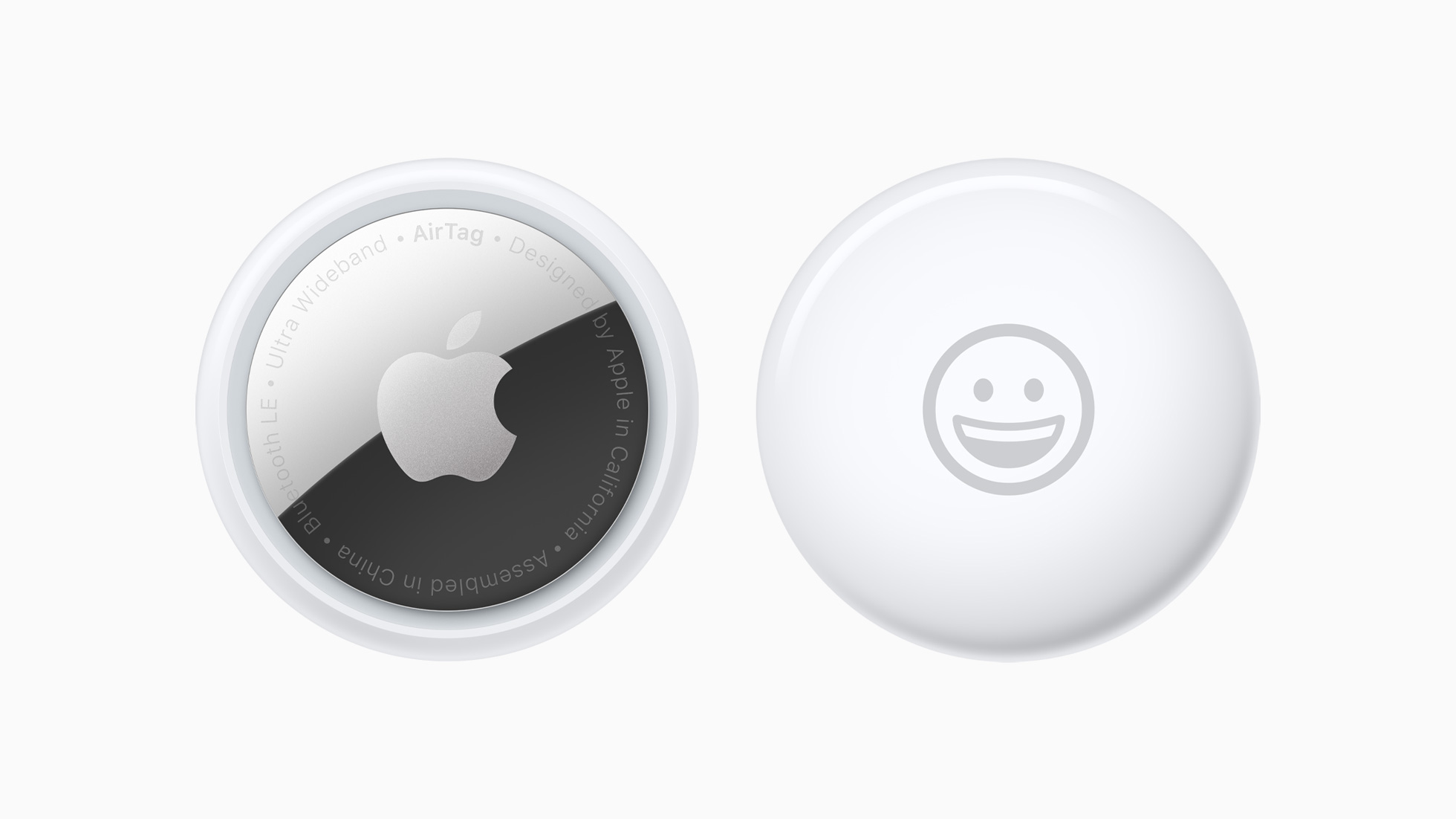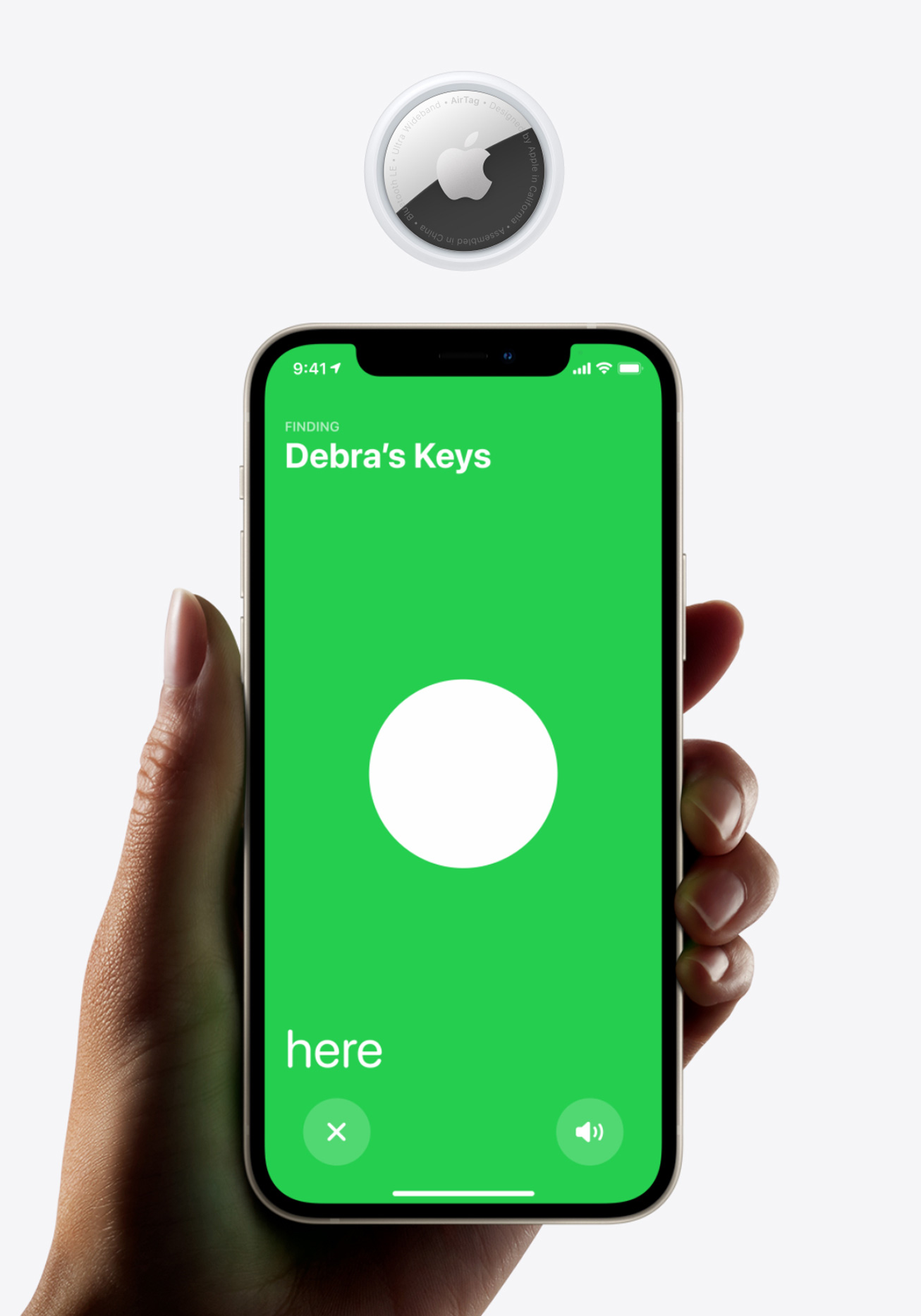Apple today officially unveiled AirTag, its location tracking beacons that can help Apple device owners find lost items through Apple’s “Find My” application. The AirTags themselves are small, rounded tracking devices that can be attached to personal items, like purses, bags or keys. Pre-orders start this Friday, and the product goes on sale April 30th, for $30. A pack of three runs $99.
The tags are small, white and circular and have the Apple logo printed on the front. They also come with a leather case and keychain dongle, allowing you to add an AirTag to your keys, for example, or a handbag or duffle, and so on. Further customization exists, including emojis symbols.
The item tracking uses the company’s proprietary U1 ultra-wideband chip for what it calls “Precision Tracking.” This will work with Apple’s newer iPhones (iPhone 11, 11 Pro and the newer iPhones 12 devices). The device uses Bluetooth LE (low-energy) and is able to get a year of battery life, according to the company. When the battery is out of juice, it’s user replaceable.
In addition to assets found in Apple’s code referencing the new product last year and a mistake in an official Apple YouTube video, AirTags had also been brought up as an example of Apple’s anticompetitive behavior before U.S. regulators.

Image Credits: Apple
Last year, for example, Tile spoke about AirTags before a panel of the House of Representatives Judiciary Committee, saying that Apple’s decision to launch its own version of the lost-item finder gave Apple’s new product a first-party advantage over its competitors. Apple’s devices, Tile explained, would be able operate in the background without having to continually popping up requests asking users to agree to background tracking, like Tile’s app has to do. Apple’s devices would also be integrated with “Find My,” but other tags would not be.
Following the regulatory scrutiny, Apple at its developer conference WWDC in June said it would extend “Find My” to third-party companies. However, a report by The Washington Post indicated that olive branch may not have been what it seemed — companies would have to sign an NDA and said Apple customers would be barred from using competing devices simultaneously.

Image Credits: Apple
Ahead of today’s event, Apple announced the launch of its Find My Network Accessory program, which officially opened the doors to third-party manufacturers who wanted access to the Find My app. Early adopters included VanMoof’s S3 and X3 e-bikes, Belkin’s SOUNDFORM Freedom True Wireless Earbuds, and an AirTags competitor, the Chipolo ONE Spot — but not Tile. We understand Tile doesn’t want to participate in Find My because it has a direct relationship with customers through its own iOS app that it doesn’t want to give up.
Apple’s entry in this “lost item finder” space means competitors, like Tile, will have more serious competition even with the concessions Apple has made with the opening up of “Find My.” Tile so far has responded to Apple’s plans by pre-announcing its plans to launch its own UWB-powered tracker, arriving this year. Apple’s tight hold over its ecosystem benefits its launch of new products, like AirTags, forcing Tile to focus on touting its advantages, like its wider variety of form factors and cross-platform support.





















